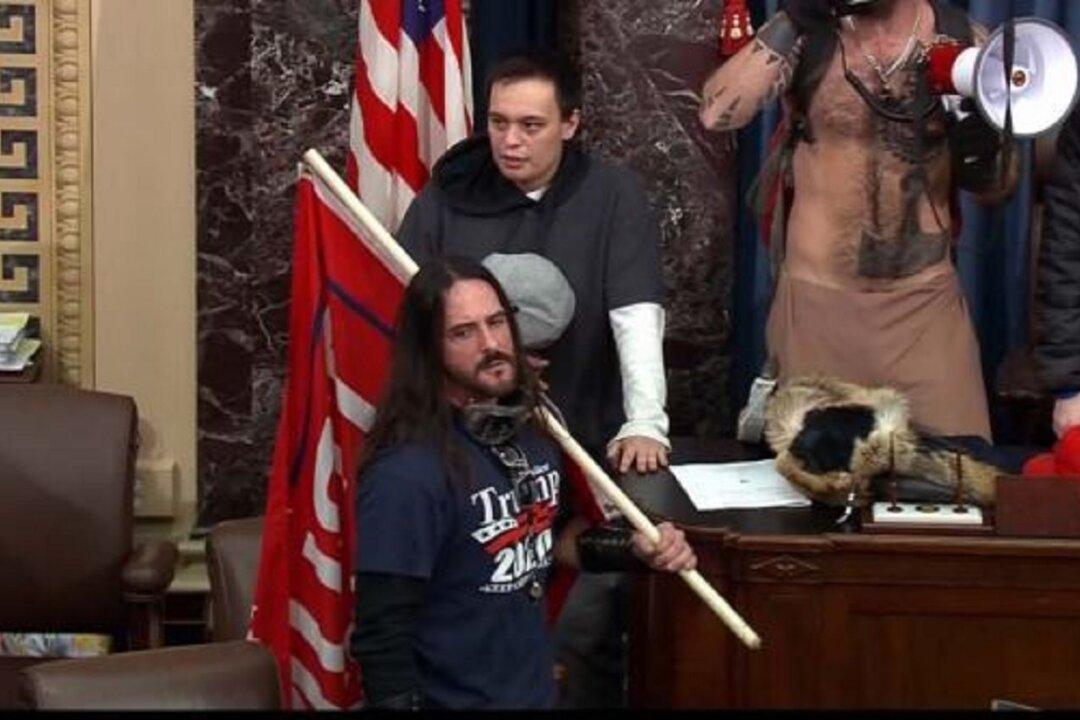A man who entered the U.S. Capitol on Jan. 6 was sentenced to eight months in jail on July 19.
Paul Hodgkins, 38, of Tampa, Florida, entered the Capitol building on Jan. 6 at approximately 2:50 p.m. He was seen about 10 minutes later wearing a “Trump 2020” shirt and waving a flag with the same message on it, walking among the desks in the Senate well, taking selfie photographs with his cell phone and donning, at one point, white latex gloves.





